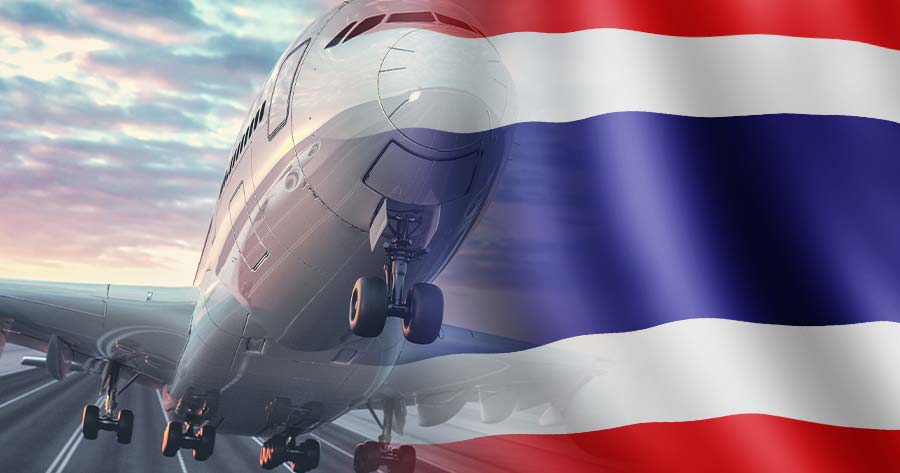Thai Airways International Public Company Limited (SET: THAI) report total revenue (excluding one-time items) of THB 43,981 million, THB 6,600 million (17.7%) higher than the same period last year, mainly from an increase in transportation revenue of THB 5,323 million (15.2%), due to the increase in the number of flights and routes to accommodate the continuously rising passenger travel demand.
In the second quarter of 2024, there was a net one-time transaction loss totaling THB 809 million, resulting in a net profit of THB 314 million, THB 1,959 million lower than the previous year. The net profit attributable to owners of the parent was THB 306 million.
As of June 30, 2024, shareholders’ equity of THAI is THB -40,430 million, an improvement of THB 2,712 million compared to December 31, 2023, from the operating profits of the company.
In the second quarter of 2024, THAI continued to implement a rehabilitation plan, focusing on revenue generation from transportation, improving fleet efficiency, and exploiting non-core assets. The key operations undertaken during this quarter included:
– Improvement of its fleet efficiency and route expansion: by taking delivery of 3 Airbus A350-900 aircraft and 1 Boeing 787-9 aircraft to support increasing flight frequencies to major cities such as Sydney, Taipei, Tokyo (Narita), Kunming, Chengdu, and Phuket, and resuming services to Perth, Colombo, Milan, and Oslo (Milan and Oslo operate from July 1, 2024 onwards). Additionally, opening a new route to Kochi and increasing flights for special occasions, such as increasing domestic flight frequency during the Songkran festival and providing special flights for Hajj pilgrims to the Kingdom of Saudi Arabia.
– Exploitation of Non-Core Assets: by selling 1 Airbus A340-600 and 1 Boeing 777-200 aircraft, 2 spare engines that are no longer in operations, and other assets.
As of June 30, 2024, THAI operated a total of 77 aircraft. In the second quarter of 2024, THAI had an average aircraft utilization of 13.1 hours. Available Seat Kilometers (ASK) increased 2,787 million or 21.1% and Revenue Passenger Kilometers (RPK) increased 1,243 million or 11.9 % from the same period last year. Meanwhile, the cabin factor decreased from 79.2% in the same period last year to 73.2%.
The second quarter is typically the period with the lowest passenger travel demand of the year, while 2023 being a period of recovery for the aviation industry from pent-up passenger travel demand, the reopening of China, and the relaxation and removal of travel restrictions, causing the previous year cabin factor to be higher than usual. However, average passenger yield (including fuel and insurance surcharges) was 3.07 THB and total number of passengers carried was 3.81 million, an increase of 3.4% and 13.7%, respectively from the same period last year. For freight operations, Available Dead Load Ton-Kilometers (ADTK) increased 164 million or 23.5%, and Revenue Freight Ton-Kilometers (RFTK) also increased 87 million by 24.4%. The average freight load factor was 51.5%, similar to the same period last year.
Additionally, THAI is preparing a registration statement for sale of securities and draft prospectus to the Securities and Exchange Commission, Thailand (SEC) and the Stock Exchange of Thailand (SET) in preparation for its capital restructuring process. THAI expects to complete debt-to-equity conversion and newly ordinary shares offerings within the end of year 2024, with the objective to have positive shareholders’ equity in 2024’s annual financial statements. This is one of the conditions for the success of business rehabilitation. Thus, THAI securities can resume trading on the stock exchange again to build confidence among creditors, existing shareholders and investors in supporting and joining as partners of THAI, as it returns to strong growth and sustainable profitability.





